The winner of the first-ever Sperm Race has been crowned.
Yep, you read that right.
On Friday, two students set out to change the ‘sperm paradigm’ with a one-of-a-kind event where they raced their sperm in front of hundreds of people.
After a tense few moments where we watched their sperm under a microscope swim through a race, 20-year-old Tristan Milker was crowned champion.
The student of the University of Southern California (USC), went up against Asher Proeger, a 19-year-old of the University of California, Los Angeles (UCLA) to compete in the world’s first-ever sperm race.
The microscopic race, which was livestreamed, was held at LA Center Studios, a 20-acre campus known for hosting conventions and festivals.
Ahead of the event, one of the masterminds behind it all, Eric Zhu, 17, spoke of how he wants to change the ‘sperm paradigm’.
And Eric, behind the analytical platform Aviato, knew exactly how to do it: have two guys race their sperm in front of hundreds of people.
‘It’s so, so stupid,’ Eric told Metro ahead of the race, ‘but it just might work.’


When was the sperm race?
Tickets sold out in less than 48 hours, Eric said, tallying about 4,000 people, only for organisers had to switch venues, refund the tickets, and resell them again.
The demand, however, only increased after the venue switch. At one point, there were 913 people on the waiting list. When it comes to venues, at least, size certainly matters.
(There was a VIP ticket, but we’re guessing it didn’t let you see the drivers getting ready for the race.)
Doors opened today at 6pm local time on Friday (2am Saturday in the UK). But before the men got their engines running, an ‘undercard’ race between influencers Noah Boat and Jimmy Zhang happened at 8.15pm.
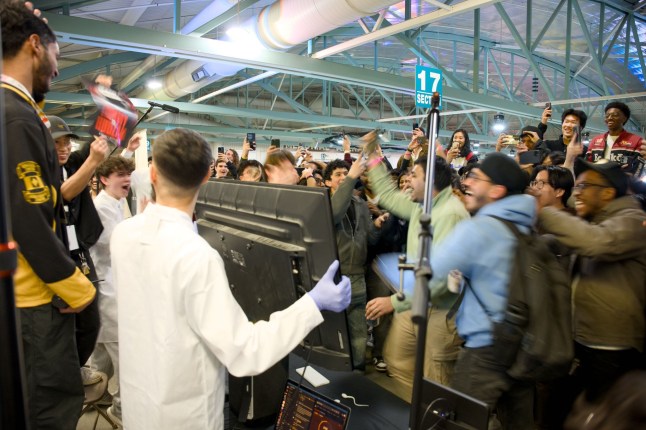
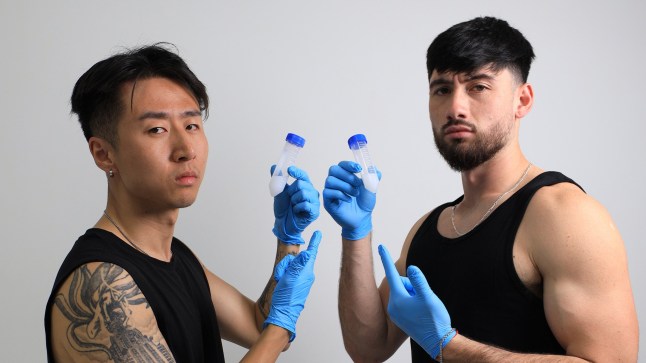
A half-time show followed, with Ty Dolla $ign singing and vunnie ‘Westside V’ thou on the decks.
‘If you’re ever wondering what’s going on in LA, this is what’s going on,’ the DJ wrote on Threads.
But that wasn’t not the climax. The start pistol was set to be shot at 10.05pm for Tristan and Asher’s race after a weigh-in and press conference.
Viewers could even bet on which guy was going to come on top, with the odds being 50/50 between them just yesterday on bookies Polymarket.
In the test runs, Eric cautions, it’s always been ‘neck and neck’ between the guys. ‘I don’t know who’s gonna win,’ he said before the race.
How… exactly are sperm racing?
For once, finishing sooner rather than later is the way to go. Two spermatozoa, just 0.05mm long, raced along a 20cm track.
But don’t expect a Scalextric set. Instead, the micro-motorists swam through a 5000-microns-long drag course modelled after the female reproductive system.
It was be set up on a microfluidic channel on a microscope slide that was projected for the audience to watch and cheer the racers on.
To get these lil guys to swim, the track was fitted with ‘chemical signals, fluid dynamics, synchronised starts,’ Eric said in his Sperm Racing manifesto.
‘High-resolution cameras track every microscopic move. It’s all live-streamed, complete with stats, leaderboards, and instant replays,’ he added.
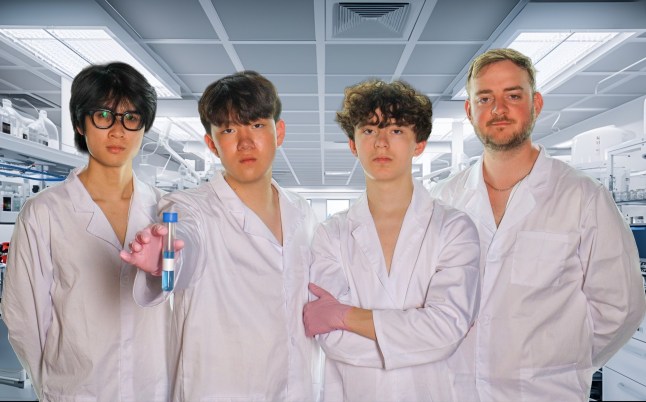
‘The winner? The sperm that crosses the finish line first, verified by advanced imaging. The stakes have never been smaller – or bigger.’
Sperm, with chubby, tear-drop shaped heads and sleek tails, can glide, slither, spin and dash despite being the tiniest cells in the human body.
They’re also among the fastest. Sperm can whizz at 28mph – but these cellular commas only have one thing on their minds, getting to an egg.
Eggs cells let out a chemical that attracts sperm to them, which sperm sniff out to know where to go in a process called chemotaxis.
‘It’s a lot harder than you think to race sperm,’ Eric joked.
Are you joking?
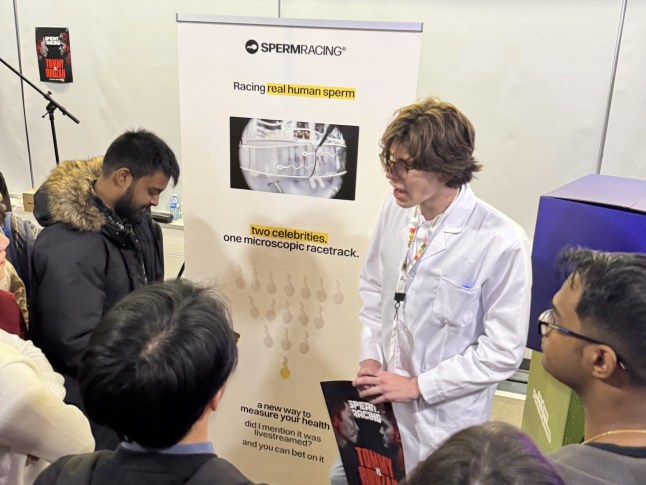
No, Eric wasn’t. The idea to create the F1 of spermatic fluid came up while the investor was chatting with health-focused friends about sperm.
‘And not in a degenerate way,’ he said, ‘they were like, “what’s your sperm health?” I had never heard sperm talked about in a health-oriented way before.
‘Then I think to myself, wouldn’t it be kinda sick to race sperm? It’s an accurate biomarker; the healthier you are, the faster your sperm is.’
Almost casually, Eric recounted how three months ago, a billionaire flew him out to New York and asked: ‘What’s the craziest idea that you have that’s not your current company?’
‘Sperm racing,’ he replied.
It didn’t take long for him and three friends – Nick Small, head of business management consulting firm Stealth, Shane Fan, CEO of NFT pricing platform Waterfall, and Garret Niconienko, a former content strategist for YouTuber MrBeast – to found Sperm Racing, a start-up.

Showing spunk, the four went around pitching their idea to a few investors. ‘I thought there’d be no way people would put money in this. No way that people put, $100,000 – the maximum,’ Eric says.
The $1.5million business venture saw a million raised from independent venture capital investors, crypto investors and gambling companies.
‘Someone wired us $360,000 without signing any contracts whatsoever. It was kind of easy and then, in less than a week, we had the money,’ Eric added.
So, this really happened. But why?
Good question, and it’s one that Eric wants people to ask.
Average sperm counts worldwide have declined by half over the past 50 years.
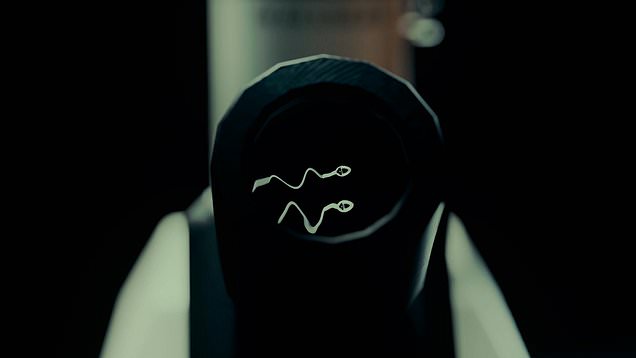
The sperm count of men in Western countries has been steeply declining with no signs of ‘levelling off’ since 1973, a study found in 2017.
The team looked at the semen samples of nearly 43,000 men across 50 countries from 1973 to 2011. They found that the men’s sperm concentration – the number of sperm per millilitre of semen – had declined 52.4% in men from North America, Europe, Australia and New Zealand.
While total sperm count fell 59.3% over the nearly 40-year period.
Sperm count is not the be-all, end-all of male fertility and overall health, health experts stress, though exactly why rates have dropped is unclear. Some suggest that sperm levels naturally rise and fall over time and within populations, while the researchers say stress, obesity and age are factors.
‘If you look at cigarettes, 50 years ago, no one was talking about [the negative health effects],’ Eric says.
‘When people started talking about it, people were getting healthier when they got rid of cigarettes. And I think the same with sperm.’
‘In the last 50 years, not enough people have been talking about it.’
Eric said the project inspired him to get his semen count tested, and he hopes more people do the same.
‘We’re trying to bring this to the mainstream,’ Eric adds, ‘before it’s too late.’
Get in touch with our news team by emailing us at webnews@metro.co.uk.
For more stories like this, check our news page.
MORE: Why does Hawaii love Spam so much?
MORE: Mom falls to her death in front of three of her kids while hiking
MORE: Luigi Mangione dons new look pleading not guilty to murdering healthcare CEO in federal court











